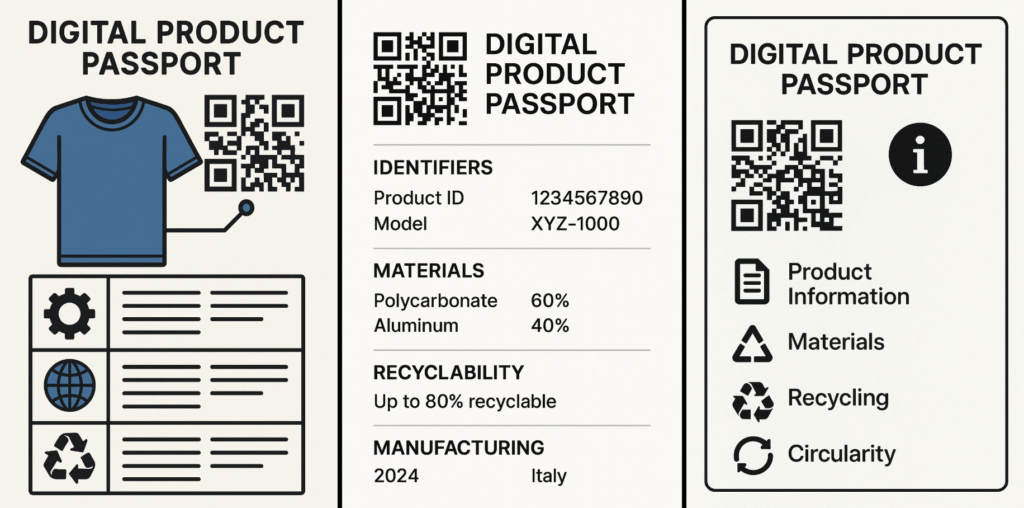Sustainability and transparency are becoming increasingly important within Europe - and this is reflected in legislation. From 2026, the Digital Product Passport (DPP) will become mandatory for certain sectors from the European Union. The intention? To provide insight into the origin, composition and impact of products across the chain. In this blog, we explain what exactly the DPP is, why it is important for B2B web shops and how you can prepare for it.

What is a Digital Product Passport?
A Digital Product Passport is a digital document that collects all important data about a product. Think of:
- Origin of materials and components
- Manuals and maintenance instructions
- Customs and transport documents
- Information on production processes
- A unique product ID
- Instructions for reuse, recycling or disposal
The aim is to make the entire life cycle of a product transparent - from raw material to waste phase - and thus contribute to more sustainable choices in the chain.
Legislation: what's ahead?
The European Commission has announced that from 2026 will become mandatory in several sectors, including textiles, electronics and batteries. Which industries will follow next is not yet exactly clear. The exact technical details of the DPP are also expected later this year. But there is no doubt that it is coming. And that it will have an impact on how you handle product information as an online shop, too.
What does this mean for your B2B webshop?
For B2B websites good product data will soon no longer be a nice-to-have, but a must. As a supplier in the chain, you will have to be able to demonstrate where your products come from, what they contain and how they can be processed or reused.
That may sound like a lot of work, but that is precisely where there is an opportunity. Because with a well-designed PIM system (Product Information Management) you can intelligently collect, manage and access all this information.
DPP and PIM: a golden combination
Much of the data that will end up in a Digital Product Passport is ideally already collected in your PIM. Think of product specifications, supplier information, certificates, maintenance instructions or technical documents.
With a solid PIM structure, you will soon be able to easily compile a complete digital passport for each product.
Some examples of data you can already include in your PIM:
- Origin information of raw materials
- Certificates and quality marks
- Recycling instructions or return policy
- Manuals and documentation
- Product IDs and serial numbers
By starting to structure this data now, you will ensure that you are not behind the times later.
Why start now?
Even though the exact guidelines are not yet final, it is smart to prepare now. Why?
- You avoid last-minute stress as soon as the rules kick in
- You make your organisation more agile and efficient
- You build trust with customers and supply chain partners
- You position your webshop as sustainable and forward-looking
Ecomwise helps you move forward
At Ecomwise, we assist B2B companies daily in optimising their product data. Whether you work with Magento, Shopware or any other e-commerce platform - we'll help you set up your smart PIM, so that you are ready for what is to come.
We think along about structure, workflows, integrations and all practical aspects of product information management. Also when it comes to future obligations such as the Digital Product Passport.






